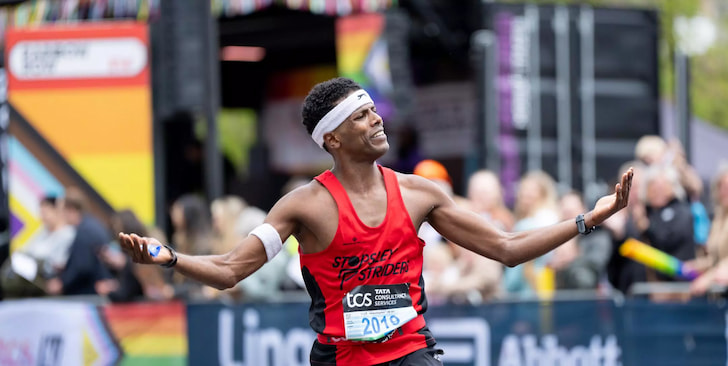The London Marathon was founded by Chris Brasher, a British track and field athlete turned sports journalist, and John Disley, a Welsh athlete who represented Great Britain. In 1979, they participated in the New York City Marathon and were inspired to organize a similar event in London. London already had a marathon event, the Polytechnic Marathon, founded in 1909, but by the 1970s it was in decline.
The inaugural London Marathon took place on March 29, 1981. Of more than 20,000 applicants, 7,747 were accepted as starters and 6,255 finished. The first men’s winners were Dick Beardsley (United States) and Inge Simonsen (Norway), who crossed the finished line simultaneously, and the first women’s winner was Joyce Smith (United Kingdom), who crossed the finish line 18 minutes later.
The London Marathon course spans 42.195 km on mostly flat terrain along the River Thames. In addition to the mass race for the general public, the London Marathon features professional races for elite long-distance runners (men and women), elite-level wheelchair races (men and women), and a 3-mile mini-race for athletes under the age of 17. The race is televised live by the BBC.
Unlike most other major marathon races, the London Marathon has a strong focus on charity. The majority of runners qualify for the marathon by pledging to raise a minimum amount for a registered charity, which varies from charity to charity. Some charities offer support to runners, such as fundraising tips and training plans. Since its inception, the London Marathon has helped to raise more than £1 billion for charity. In 2024, £67 million was raised, setting the record for the highest amount raised by a single-day fundraising event.
Other ways to qualify for the race are through the general ballot (winners are drawn at random), through a running club affiliated with British Athletics, through a Good for Age Entry (runners must achieve qualifying times based on their age group; UK residents only), or through a Championship Entry (for elite and high performance amateur runners who can run a qualifying race on a certified course). Each type of entry has a limited number of places available. The general ballot is the easiest way to apply, but it has the lowest chance of actually being accepted, estimated at less than 3%.
A small group of runners known as the Ever Presents have run the London Marathon every year since its inception in 1981. After the 2024 event, there were only six remaining members: Jeff Aston, Chris Finill, William O’Connor, Michael Peace, Malcolm Speake and David Walker.
The London Marathon is one of the seven World Marathon Majors, along with the Berlin, Boston, Chicago, New York, Sydney, and Tokyo Marathons. Athletes who finish in the top five of these marathons receive points based on their finish. At the end of the season, the athletes with the most points in their respective divisions (men’s, women’s, men’s wheelchair, women’s wheelchair) are declared winners.

Photo: londonmarathonevents.co.uk




